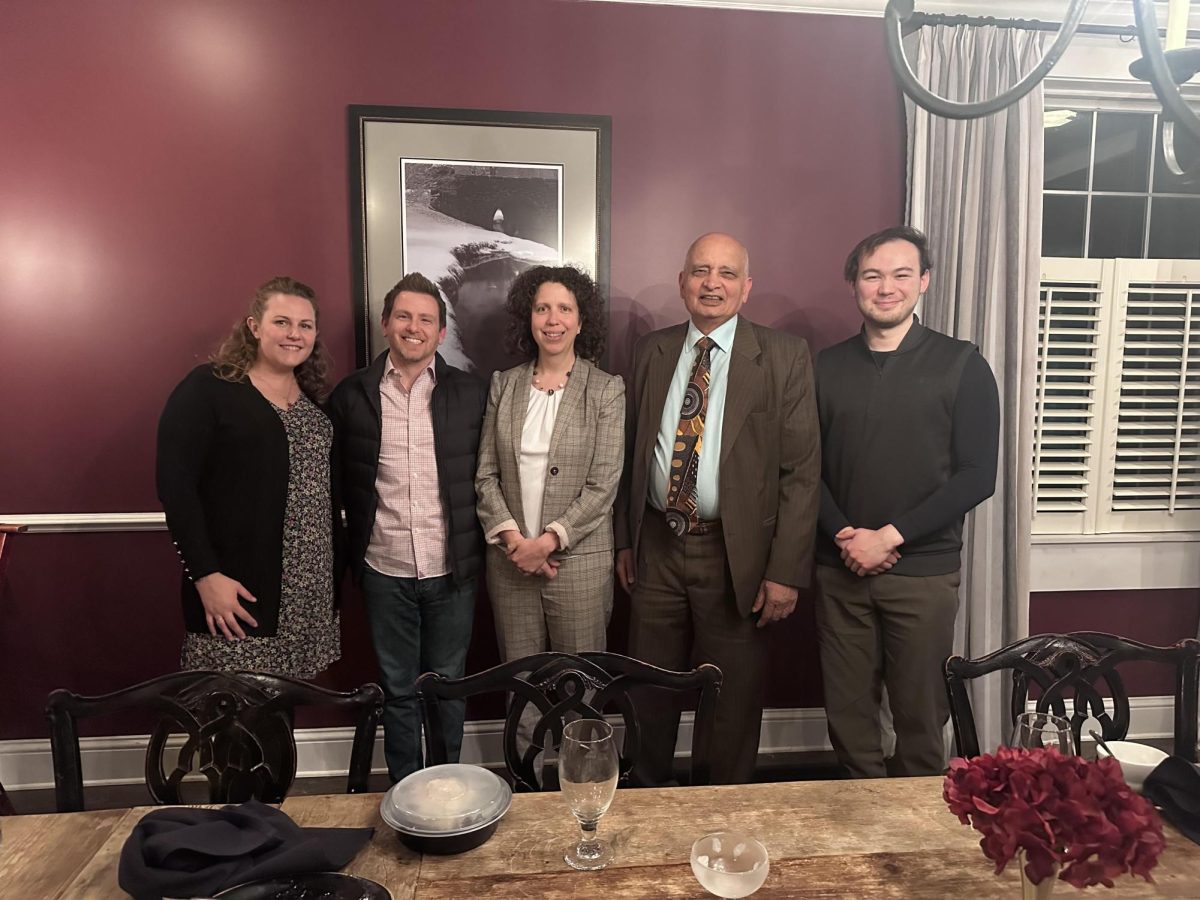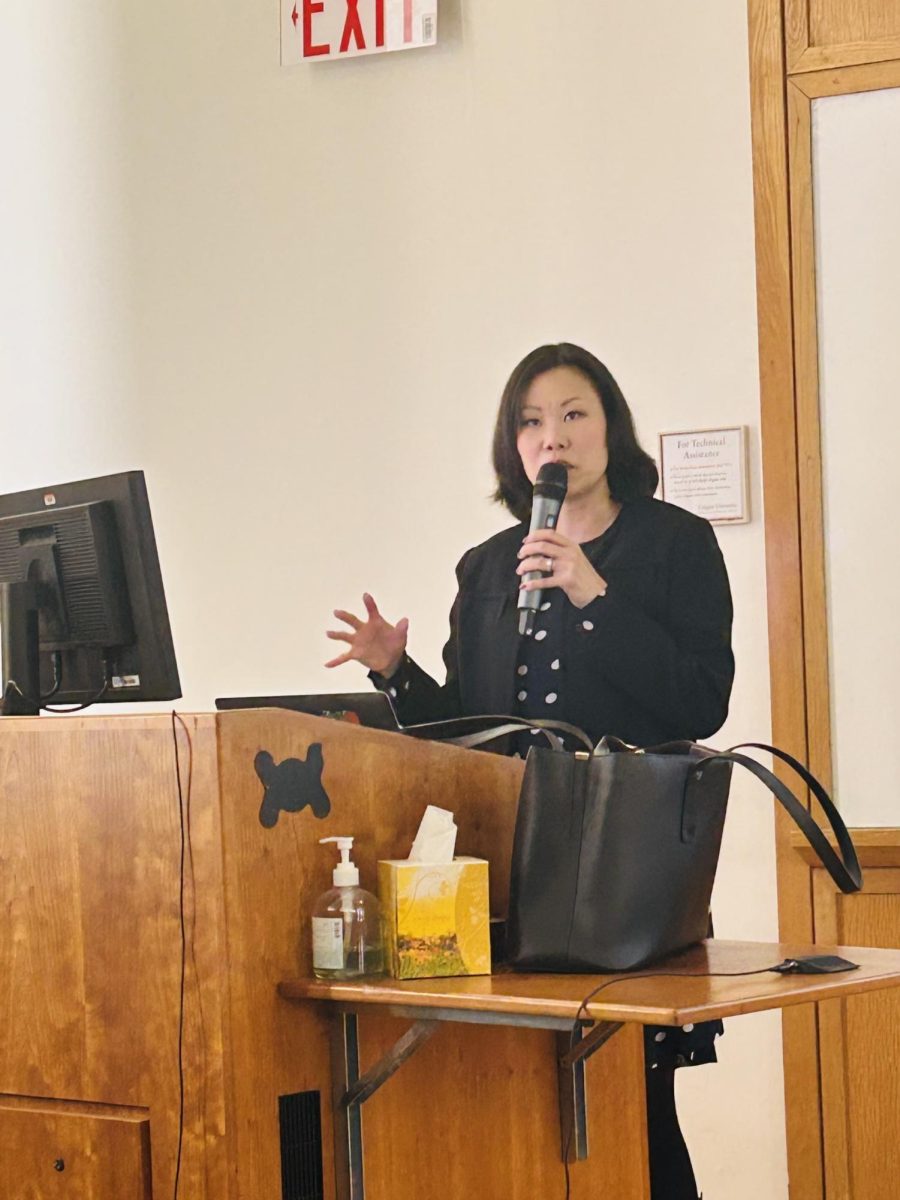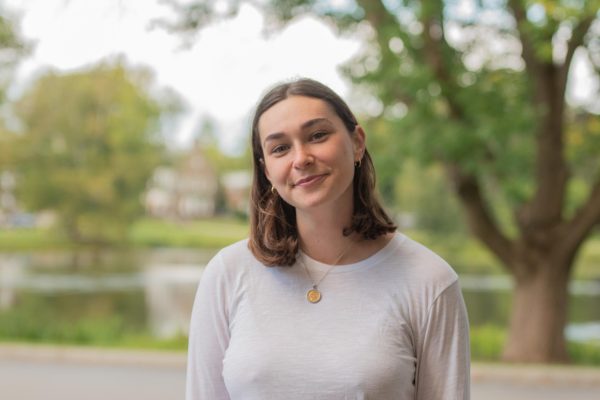Colgate University hosted Ian Garner, assistant professor of political studies at Queen’s University, to discuss his research and recent book in a lecture titled “How Putin is Making Fascism Cool in Russia.” The event took place on Tuesday, Nov. 7, and was co-sponsored by the Forum on Security and Democracy and the Department of Russian and Eurasian Studies. Garner’s talk centered on the Putin regime’s use of youth groups and social media to propagandize and militarize Russian society.
“[The Russian state is] bringing back conservatism into Russian youth culture,” Garner said.
Garner’s research found that the Russian government used material incentives to lure young people to far-right marches, broadcasting photographs of these youth participants on state-run news and social media. By continuously pushing the narrative that young Russians are embracing Putin’s conservatism and ultra-nationalism, Garner argued, the Russian state is successfully making its fascist ideology seem trendy and cool.
“They’re attracted by free concert tickets, little amounts of money, train tickets into Moscow, nice things to have […]. These people don’t really believe in anything, so they don’t give two hoots about these [far-right] projects. But it is the impression that they give two hoots about projects that matters,” Garner explained. “You don’t know what the world is really like. You know what you see on television, and increasingly with the 2000s, you know what you see on the news. And the Kremlin very quickly begins to understand that we can cut up these images. We can recombinate and recycle them and create the impression of a movement even where no movement really exists.”
Garner also showed the lecture audience clips from Russian films and music videos that use classic Hollywood film techniques and modern media tools to softly propagandize viewers against Western values and towards Putinist ideals. Presenting the music video for a song by Russian rapper Timati that features the repeated refrain, “My best friend is President Putin,” Garner explained how this blending of fascist messaging and high-quality media allows problematic ideas to be absorbed by Russians without a second thought.
“You can consume and you can enjoy the language of the state without ever really thinking that this is highly aggressive,” Garner said.
Garner also expounded on the use of TikTok as a propaganda tool for Putin. The Russian paramilitary youth movement Youth Army, which was founded in 2016 by the Russian state, borrows Western aesthetics to popularize its militarized youth identity. Youth Army has a website with video game-esque graphics and a dedicated app and uses relaxed uniforms like t-shirts and hoodies. The group also uses Russian nationalist influencers on TikTok to promote their movement and values.
Sophomore Lola Garrigue attended the event and found that this part of the lecture shed light on a new aspect of the Putin conversation.
“I thought it was really interesting how [Garner] brought modern social media into the conversation, because it’s not really something I think about when I think of propaganda techniques,” Garrigue said. “It was really impactful to watch some of them […]. Something that stayed in my mind was how the youth group was being promoted on TikTok, with everything from dances to gun assembling.”
Garner’s lecture was full of case examples and anecdotes from his time spent interviewing and researching young Russians on the ground in Russia, many of which were also published in his recent book, “Generation Z: Into the Heart of Russia’s Fascist Youth.” Professor of Jewish Studies and Russian & Eurasian Studies Alice Nakhimovsky included parts of Garner’s book in the curriculum for her course REST 410: Perspective on Russia/Ukraine. Nakhimovsky explained the importance of Garner’s lecture.
“Garner’s topic, about the nurturing of fascism in Russia, is huge and overlooked,” Nakhimovsky said. “Clearly it’s in the interests of [the Russian and Eurasian studies program] to examine what is going on over there right now.”
Nakhimovsky also thought the topic of Garner’s lecture was especially relevant for young students at Colgate.
“What Garner describes is your future,” Nakhimovsky said. “You — students — will have to deal with it.”










